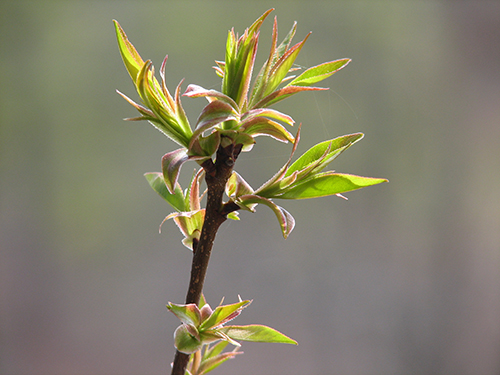Climate change researchers predict that rising global temperatures will dramatically impact ecosystems and many of the species they support. One such change that will undoubtedly affect many plants and animals is disruption of their phenology, or life cycle phases (phenophases), such as leafing, flowering, emergence of insects and arrival of migratory birds. In 2005, researchers across the country gathered at a workshop to establish a nationwide network of phenological studies. The resulting USA National Phenology Network is a collaborative framework of agencies, educational institutions, non-governmental organizations, citizen volunteers and many others.
The Network establishes protocols for monitoring the various “phenophases”, such as when the first flower and first leaf appear on a lilac, and provides a web site to record the data. Phenological monitoring focuses on a wide range of plant and animal species and participants include individuals of all ages and backgrounds. Phenological data enables researchers to determine which species are most vulnerable to climate change, how these species’ populations will respond over time and how these changes may affect other species and overall ecosystems.
NH Audubon in planning a project to document the phenology of plant and animal species on the Deering Wildlife Sanctuary in Deering, NH. The Deering Sanctuary will serve as a pilot study site for testing the methodology and applicability of phenological monitoring on other NH Audubon sanctuaries. Objectives of the Phenological Monitoring Project include collection of phenological data on selected plant and animal species and recruiting and training of volunteers to participate in the project as citizen scientists.
To learn more about Phenological Monitoring visit the National Phenology Network at www.usanpn.org/


